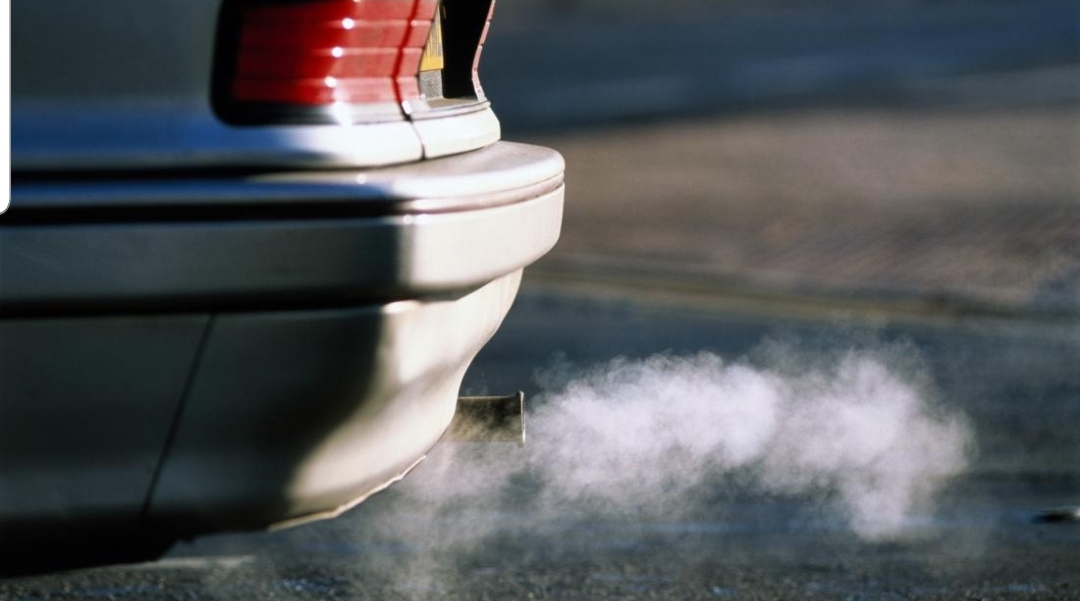BY CHIMA NWAFO
When in 1984 the federal military government ordered the administrator of Lagos State, Gbolahan Mudasiru, to suspend “with immediate effect” the visionary Lagos Metro-line project initiated by the performing elected governor Lateef Kayode Jakande, no one thought about the long-term effects on a city that was growing geometrically. Neither did the all-wise dictatorship consider the financial consequences of the multi-million dollar breach of contract. All that is now history! But not completely as by a twist of fate same head of state who took the action 36 years ago is, again, on the saddle now that Lagos has become the only mega-city without a functional transportation system.
Related is a broadcaster’s patriotic service denounced by the incumbent administration. The Rivers State Environment Commissioner Roseline Konya admitted the hazards of the 2016 soot invasion of Port Harcourt air; according to her, “a 2016 sampling of particulate matter (PM) recorded a high reading of 270 micrograms per cubic metre in the city.” Dr Furo Green, former chairman of the Nigerian Medical Association, Rivers State, said of the PM: “This (particulate matter) is being inhaled into the lungs. Of course, it will find a way to the blood. It will cause different issues in the body’s system, which can lead to cancers.”
Green’s expert opinion tallies with several others on the same subject.

Yet, the efforts of a broadcaster to raise awareness and demand government’s attention drew the anger of the Federal Government’s regulator. “It’s covering my skin,” said Sandra Ezekwesili, 29, a radio presenter who co-founded #StopTheSoot, a grassroots campaign advocating for clean air in Rivers State. “It’s covering the soles of my feet. It’s getting into my food. It’s just more than a little scary. If I did not speak up about it, we’re all just going to keep inhaling this thing.” These were Sandra’s words and deed, as captured by a foreign reporter that attracted the ire of Nigeria’s National Broadcasting Commission which threatened to shut down and fine Ezekwesili’s radio station and two others for “inciting the protest.” Can you see how unpatriotic those young Nigerian are in the eyes of the Federal Ministry of Information?
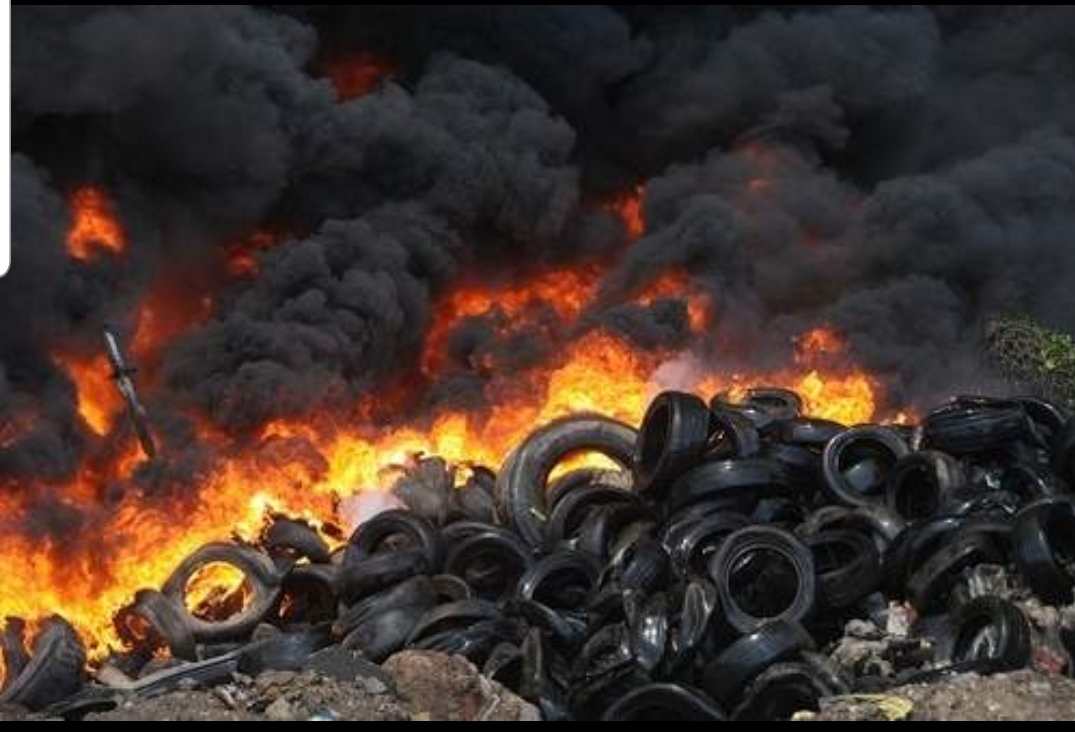
From Lagos to Onitsha and Port Harcourt, heavy air
pollution envelops Nigeria’s southern region. Leaders aren’t helping, states
Ann Cunningham of Unmark, in a 2018 picturesque and damning expose
on the effects of air pollution in the three named cities and government’s
indifference towards providing any solution. “The fires
burn constantly in and around Onitsha, a growing city nestled on the banks
of the Niger River in southern Nigeria. Each fire is surrounded by its own
hells-cape of rotting food, mounded rubbish, castoff computers, and
slaughterhouse scraps, and the blazes – often fueled with old tires sliced into
ribbons – incinerate the city’s waste and send out noxious plumes of smoke
laden with dangerously high levels of particulate pollution.
“On the edge of one burn site, where a young boy watched as a laborer
slaughtered a goat and tossed its carcass into the flames, a portable monitor
recorded PM2.5 – the smallest and most dangerous form of particulate
matter – at 999 micrograms per cubic metre of air, the upper limit the device
could read and 40 times the World Health Organization’s guideline for an
average 24-hour level of exposure. Fifty feet away, the metre still registered
283. None of the workers wore protective gear.”
Available data indicates that the World Health Organisation estimates the annual number of deaths from outdoor air pollution in Africa as 176,000. And the UN Economic Commission for Africa reckoned the cost of air pollution in select African cities, including Lagos, to be as high as 2.7 per cent of the continent’s GDP.
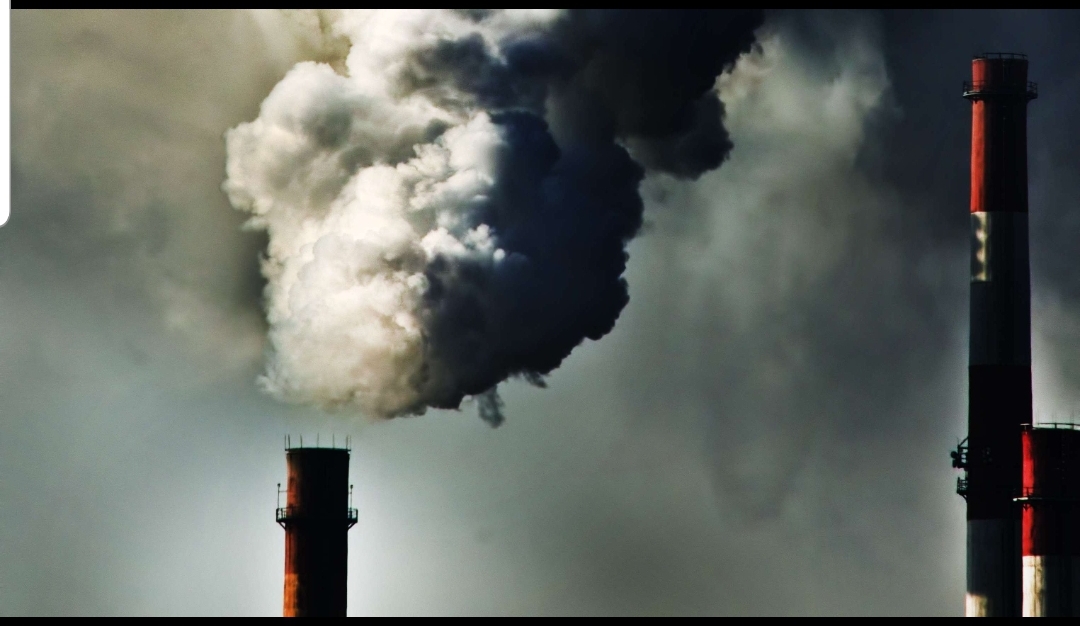
In response to questions by IRIN, medical sources observed that respiratory ailments, due to air pollution, have become one of the leading problems encountered at the Lagos University Teaching Hospital, where about one-fifth of all ailments reported by the hospital’s patients in the past two years were said to be related to various degrees of respiratory problems. Festus Ezeobi, a medical consultant said: “Most of the ailments present either as pneumonia or bronchitis. But generally, they are inflammations of the air passages caused often by chemical pollutants or bacteria.” In two decades, he has observed such cases increase ten-fold.
However, Ezeobi said medical experts do not find the development surprising: “Lagos is a city of cars and electricity generators. One of the few large cities of several million people in the world without an intra-city rail system, it is solely dependent on road transportation. It is estimated that there are at least two million vehicles in the city (2002 estimate), with up to half plying the city’s roads every day.

“Out of this number, over two-thirds are more than 10 years old,” Taiwo Olamide, an official of the Lagos State Ministry of Transport told IRIN. Another third of the total vehicle population of the city are more than 15 years old. Most of these vehicles would not pass standard emission tests in the developed countries. Yet, they are to be seen daily on the Lagos roads, emitting dark, poisonous fumes into the atmosphere.”
“ Ironically, Nigeria, a major oil producing nation imports most of its fuel – an estimated 992,000 tons of gasoline every month – because it lacks refining capacity. That imported fuel, moreover, can contain up to 300 times the level of sulfur allowed in Europe, due in no small part to Nigeria’s lax regulations. High sulfur content in burned fuel yields sulfur dioxide, a potent air pollutant in its own right, but one that also reacts with other air pollutants to form constituents of PM2.5.”
A notable feature of Nigeria’s socio-economic and political problems is that they get worse with time, rather than improve. In 2018, The Guardian of London did a report on how air pollution is strangling Lagos: Twin factors of dysfunctional transport and lack of access to electricity were identified as endangering life in Nigeria’s big cities. The Lagos correspondent illustrated his story with the plight of a lady bank-worker who leaves home two hours ahead of time to beat the gridlock on her way to the Island.

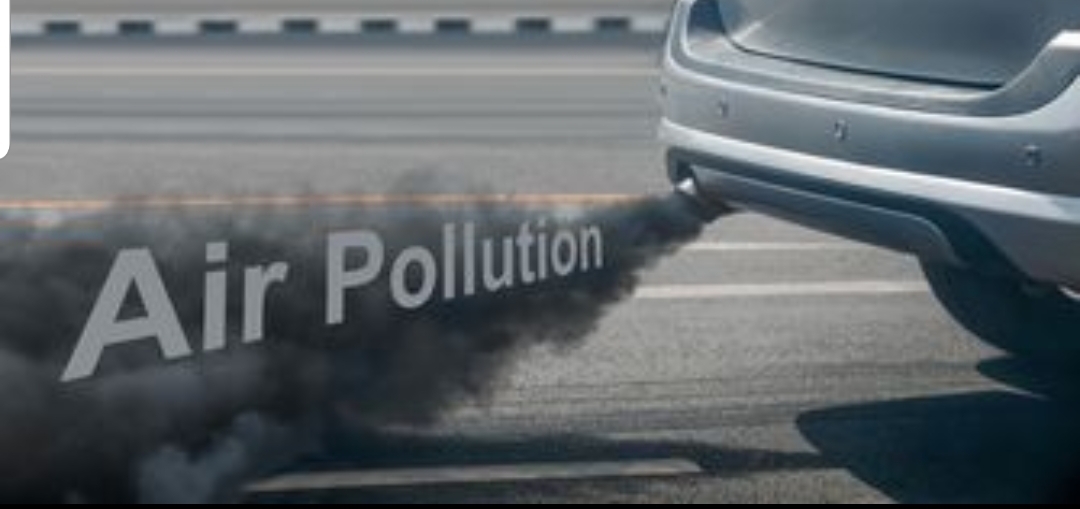
“The worst part is inhaling smoke from the fumes of a thousand cars on the return journey. I have asthmatic allergies, so it becomes hard for me to breathe sometimes if the windows are down, and my eyes get watery,” said Naomi Ndukwu, who works in a bank. ‘By the time I get home, I keep coughing and even exhale soot sometimes.’
“Ndukwu is one of an estimated 20 million people who live in Lagos, with a bustling work ethic, but a largely dysfunctional transportation system: Poor roads, under-utilised waterways as well as the lack of a metro system. All these ensure that many of the city’s millions of vehicles get stuck in the same spot for hours, their occupants trapped, inhaling polluted air.”
Irregular electricity supply by the gencos and discos with an inefficient Power Transmission Company has made Nigeria one of the biggest markets for electricity generators in the world. “Every skyscraper in the city is usually serviced by at least four giant standby generators. And once there is a power cut, which is quite often, they roar into life, puffing thick, dark smoke into the atmosphere.” Most homes, small scale businesses, artisans and religious centres also use generators: all contributing noxious fumes to the atmosphere. This is besides industrial emissions from factories.
In 2007, the Lagos Metropolitan Area Transport Authority initiated a 14-month Lagos air quality monitoring study. The results confirmed what many already knew: that transport is the major cause of pollution in the city. “Unregulated emissions from biomass burning, vehicles, diesel generators and factories in the industrial areas of the city pose serious problems for the health of its inhabitants, admits an official in the Lagos State Environmental Protection Agency (LASEPA), who asked not to be named. But Lagosians insisted that the government must do more to have a significant impact on their lives. Carbon monoxide poisoning is another danger associated with generators.
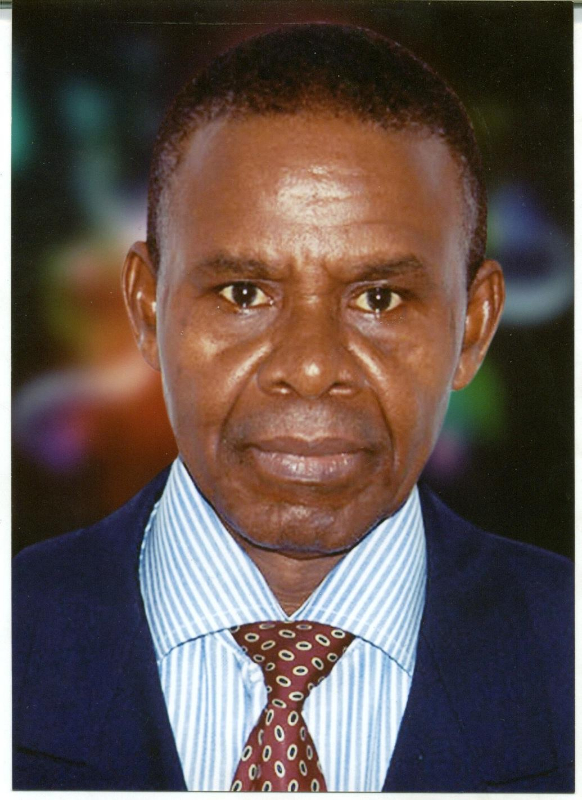
The incidence of deaths of family members from inhaling toxic fumes from their indoor generators has been a recurring decimal. “No matter how much you legislate, there will still be some level of pollution, so it is up to government to enforce that and carry out remediation,” said Gabriel Babawale, a senior lecturer in environmental sciences at the University of Lagos. “I’m not sure that government is doing much of this at the moment.”
The dangerously high PM2.5 concentrations are inextricably linked with some of Nigeria’s most intractable problems: crushing poverty, dysfunctional municipal services, and very often, political corruption. The World Bank has estimated that all Nigerians experience a mean annual exposure of PM2.5 at 38 micrograms per cubic meter of air. That’s almost Four Times What Global Health Officials Consider Safe.”
“Many times, Port Harcourt has been in the top,” said Rafael Navarro, who lived in the city for four years and started tracking air quality on a monitor inside his walled garden.
“Despite President Muhammadu Buhari’s 2015 promise to repair Port Harcourt’s aging refineries – and build new ones – the city’s two antiquated oil-processing facilities continuously pump out black smoke. Worse is the black soot, attributed by some people to the official refineries, but by others to the illegal oil processing operations outside the city. Even as the federal and state governments engage in a longstanding blame game over who holds responsibility for the soot pollution in Port Harcourt, the black dust can be seen coating the city’s buildings, the plants in its once lush parks, and even its people.
“Meanwhile, efforts to combat pollution here are hampered by a lack of reliable and readily available data. While there are three reported air quality monitoring stations in Abuja, the nation’s capital, monitoring and reporting in Nigeria is, as the Indian Center for Science and Environment found, ‘rudimentary, discontinuous, and limited in scope and duration,’ and hampered by an erratic power supply,” Unmark noted.
*Nwafo, Consulting Editor, News Express and Environmental Analyst, can be reached on: [email protected]; +2348029334754.
Share your story or I Witness Reports with us 24/7
via: SMS: +234 (0)9076248001
Whatsapp: +234(0)8072022024, Email: [email protected],
follow us on our social platform.
Gatmash Blog is the most sorts after news portal with increasing reading
audience, exclusive breaking news reports across the globe and more. Website: www.gatmash.com
For advert placement, contact us today via email: [email protected] or call our hotlines on Tel: +234(0)8072022024, 08166622444, 09076248001


